As the Lunar New Year approaches, the Department of Information Security ( Ministry of Information and Communications ) warns people to be vigilant against hackers who often take advantage of security loopholes to attack users' bank accounts.
Along with warnings about 3 scams used by scammers during the week from January 13 to January 19 on Vietnam's cyberspace, the Department of Information Security (Ministry of Information and Communications) also noted: In case of suspected fraud, people should immediately report to the authorities for timely support, resolution and prevention.
Below are 3 common forms of fraud that have just been warned by the Information Security Department:
Fraudulent tricks to buy and sell counterfeit money on Facebook, TikTok
According to the Information Security Department, the phenomenon of buying and selling counterfeit money on Facebook and TikTok is becoming more and more popular and is causing concern for users. Fraudsters often take advantage of social networks to find victims, offering to buy, sell, and exchange counterfeit money at attractive prices in order to steal real money from victims.
Just search for the phrase 'counterfeit money', a series of personal accounts and related groups will appear on social networks. Articles and clips advertise the sale of counterfeit money in many different denominations.
Sellers often leave vague information on posts and encourage customers to message directly for a quote.
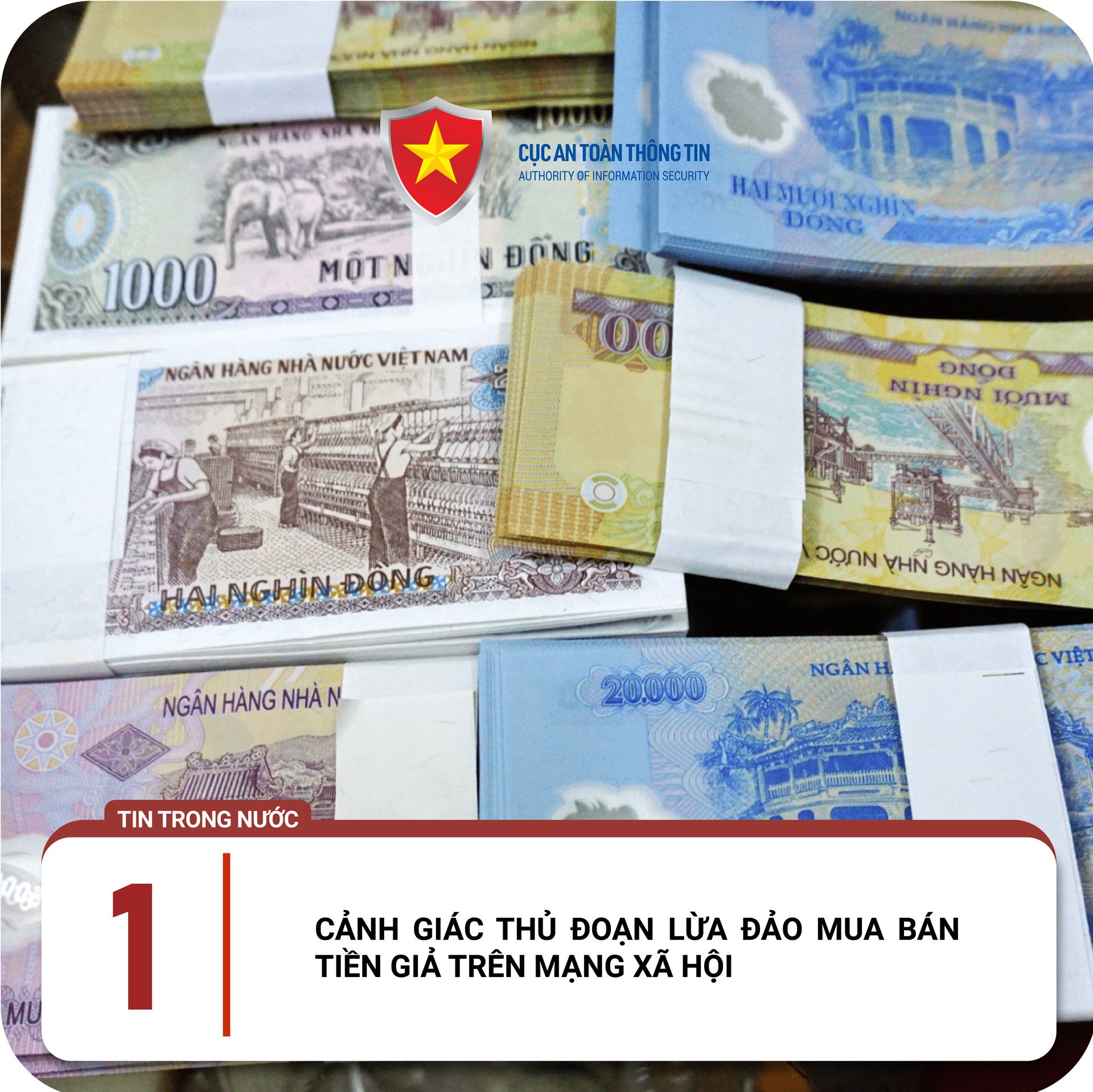
The Information Security Department advises people to use official transaction channels with legal documents. Before making a transaction, people need to carefully verify the identity of the partner, the origin of the transaction, as well as related information; and be especially wary of requests to transfer money in advance.
Travel scams with 'super discounts' during Tet
This year’s Lunar New Year holiday lasts 9 days, so the demand for package tours and independent travel has increased. This is also the time when many scams with many sophisticated tricks appear.
The subjects created a series of groups and fanpages on social networks, posting information about Tet tours with 'super promotional' and 'super bargain' prices...
The posts often include eye-catching pictures and attractive schedules. However, the scammers demand payment in full or a large sum of money before providing the service.
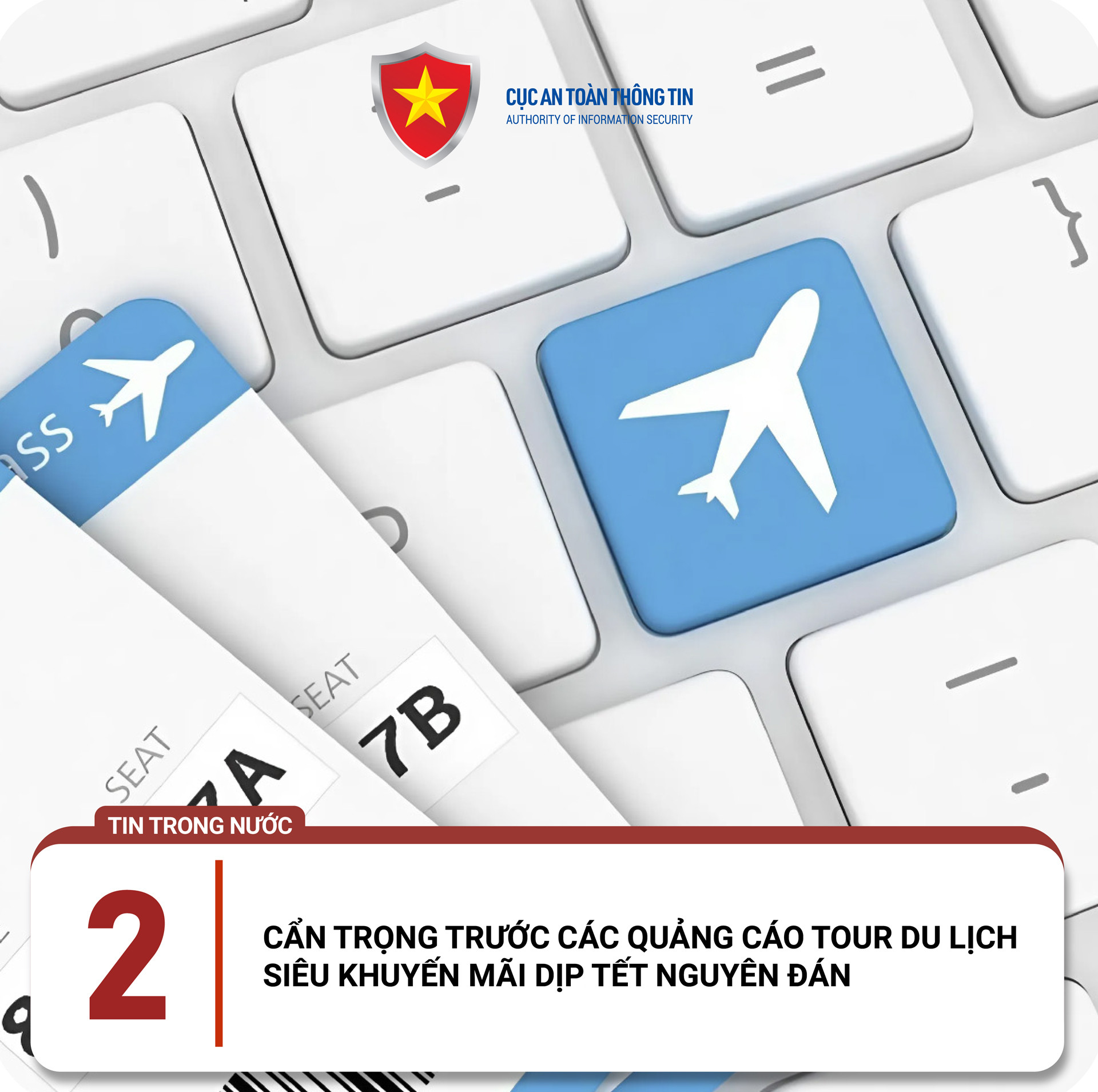
To create trust, the subjects use fake comments from virtual accounts praising the service or boasting that they have used it and are satisfied. The subjects also impersonate reputable travel companies or set up fake 'ghost companies'.
The Information Security Department recommends that people should not provide personal information, bank accounts, passwords; not access strange links; not download applications of unknown origin or follow instructions from strangers.
Impersonating a bank employee to announce that the account has been locked
In the days leading up to Lunar New Year 2025, many banks have warned users about some sophisticated scams that are often used by bad guys.
Criminals often take advantage of small transactions below the limit that requires biometric security verification, thereby profiting from the victim's account.
Fraudsters also lure people into installing fake applications to collect all personal information, from which they can make large transactions and appropriate property.
The tricks of the scam groups are considered very professional, from collecting personal information, bank account data through data trading 'black markets' or exploiting leaked information from public sources.
They then attempt to log into the victim's bank account. If successful, they will exploit sensitive information.
To create an excuse to take control, the scammer intentionally enters the wrong password multiple times, causing the account to be temporarily locked. Next, they impersonate a bank employee to contact the victim to inform them that the account needs to be restored; and instruct the user to download a malicious application or scan a QR code containing the malware to collect more important personal information.
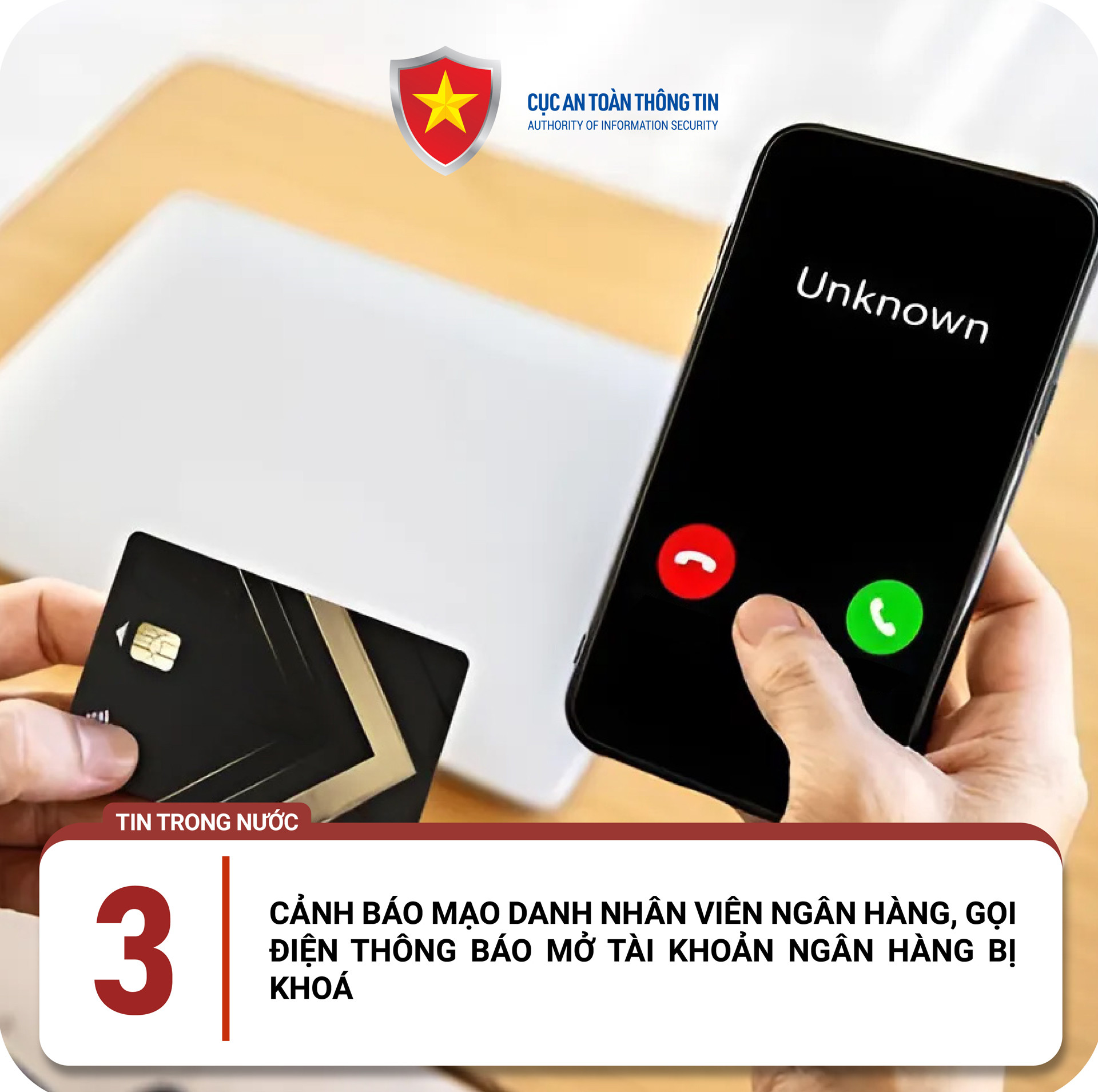
The Information Security Department recommends that people be cautious when receiving calls from individuals claiming to be bank employees; do not provide personal information, bank account information, or OTP codes; do not trust emergency notifications over the phone, and do not follow urgent requests related to accounts.
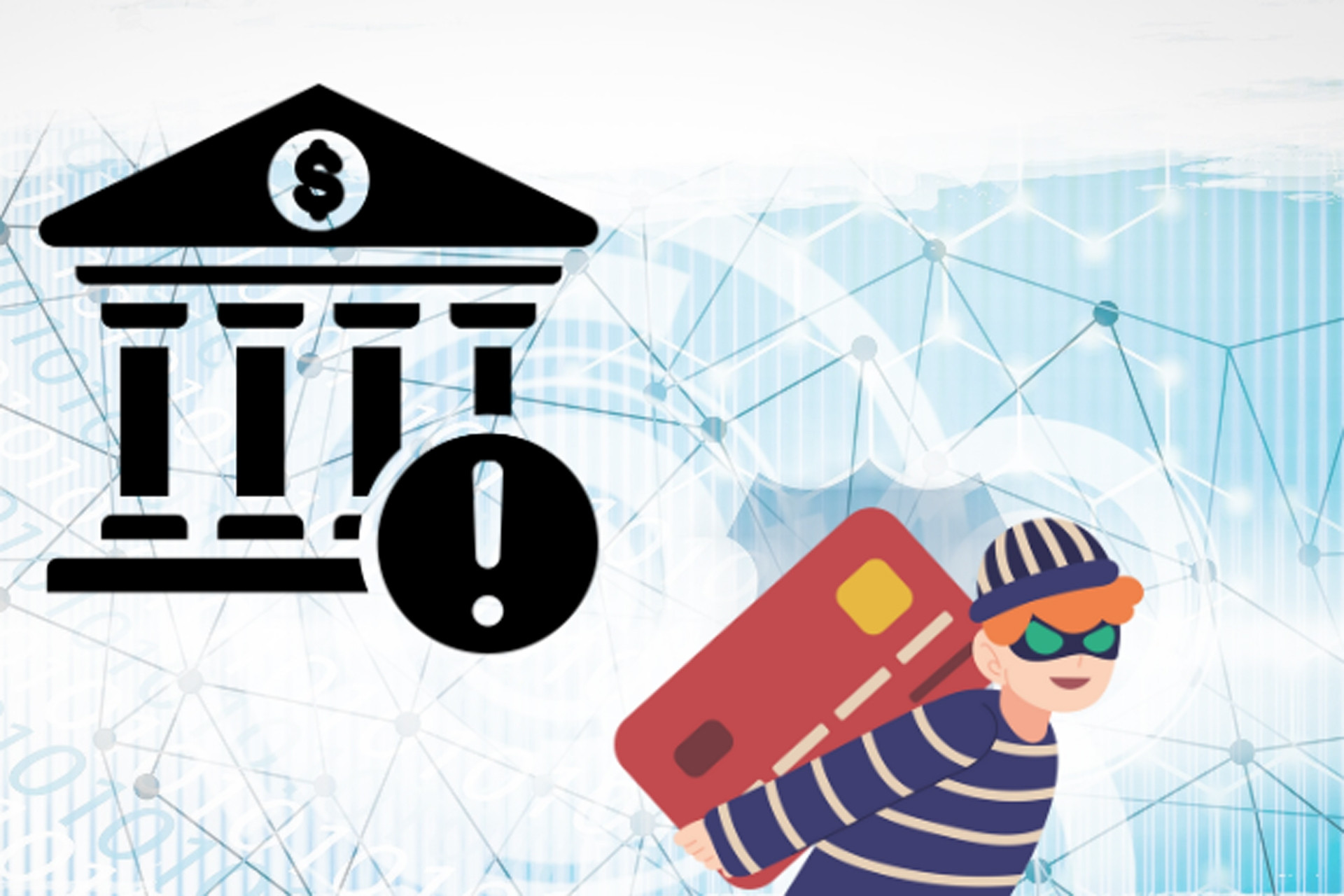
Source: https://vietnamnet.vn/tin-tac-tan-dung-so-ho-bao-mat-de-tan-cong-tai-khoan-ngan-hang-cua-nguoi-dung-2364873.html




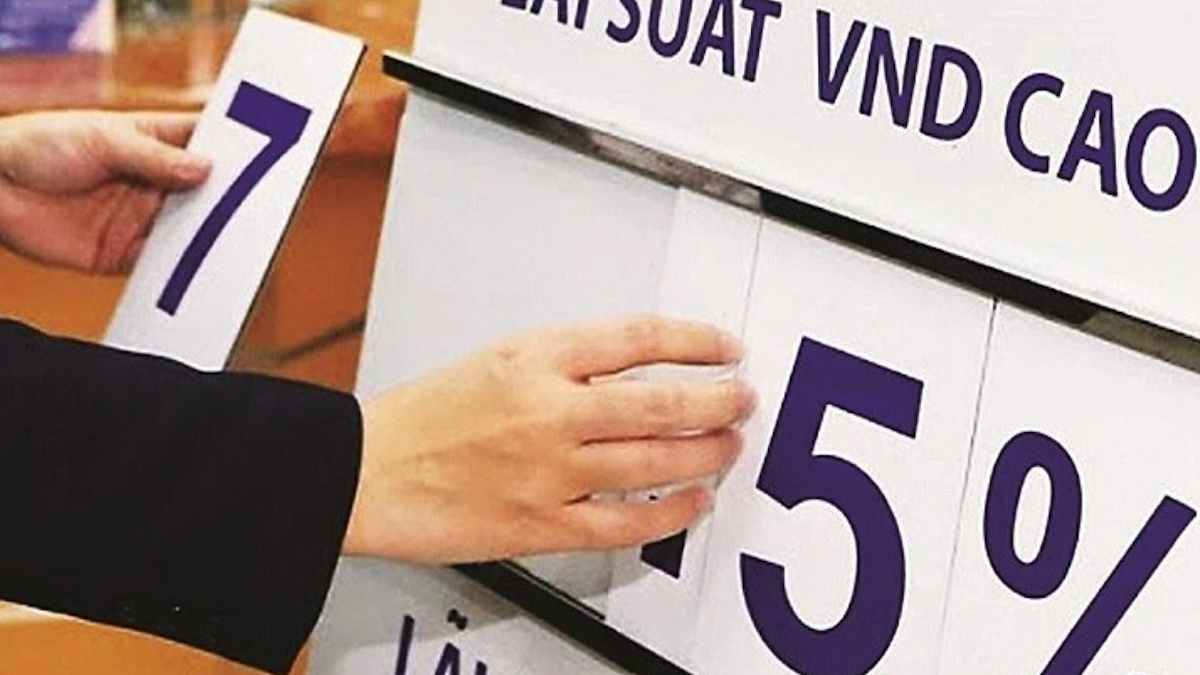





















![[Photo] Signing of cooperation between ministries, branches and localities of Vietnam and Senegal](https://vphoto.vietnam.vn/thumb/1200x675/vietnam/resource/IMAGE/2025/7/24/6147c654b0ae4f2793188e982e272651)









































































Comment (0)